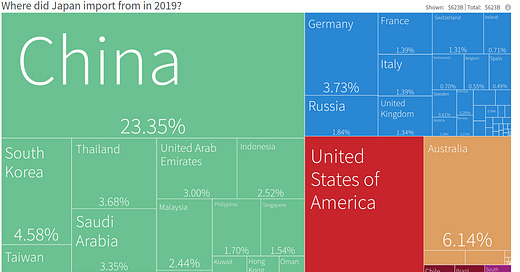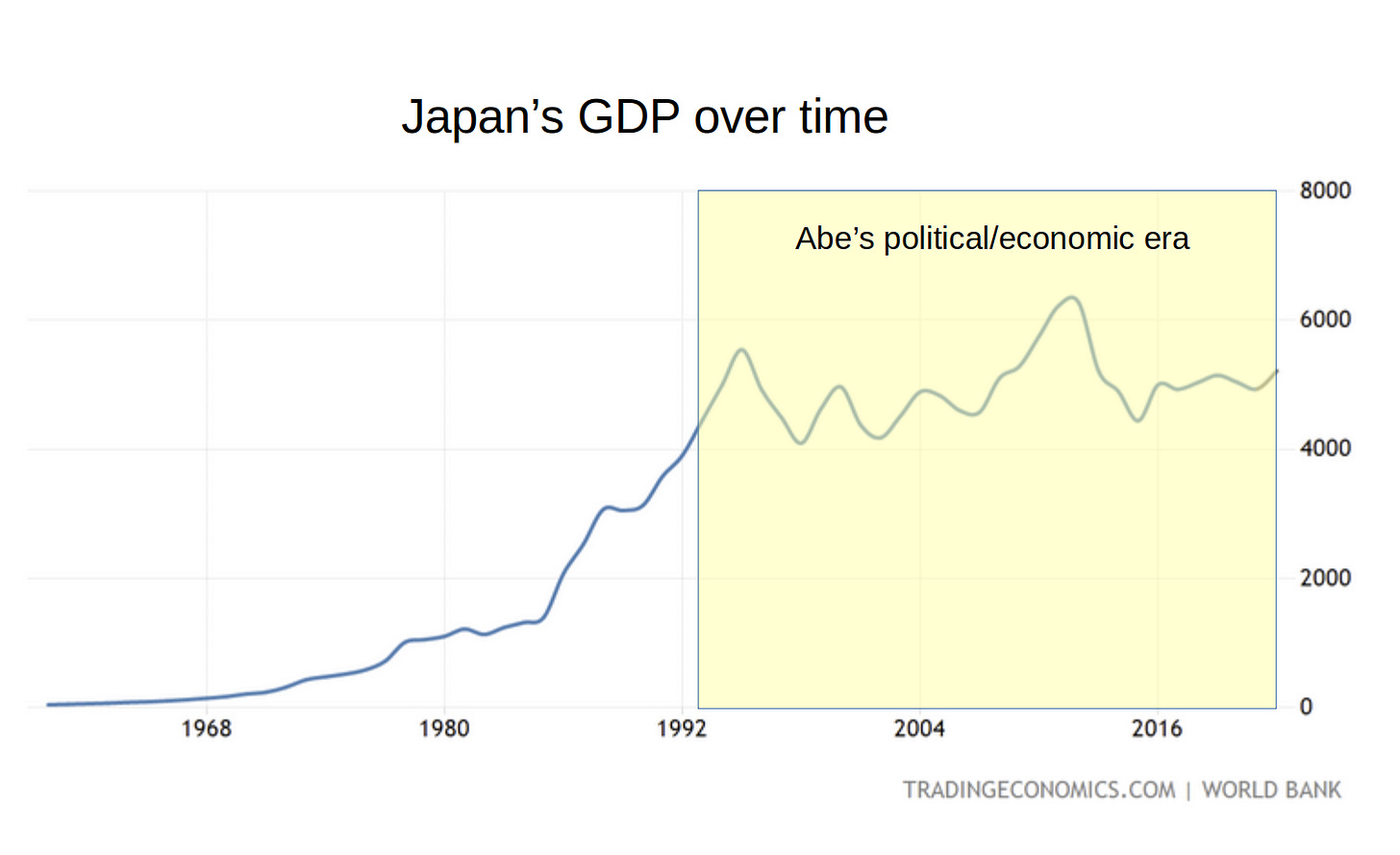Abe’s assassination, a sad situation indeed, has brought on all sorts of statements from those who are pro or anti Abe’s colourful career. Oddly, or maybe not so odd, most of the comments brings in China as a key element. I suppose that is to be expected in terms of Abe’s comments and drive to militarize Japan.
As this linked video suggests, the information currently available is incomplete, so, we need to wait to see what actually caused the assassination. The video is from a site that is mostly factual, but, in my opinion, is pro-China. From the other more anti-China factions, there has been many who laments the recent death of a champion for the militarization of Japan. The militarization is usually couched in terms of confronting China.
Regardless of what ones opinions are, these events do not generally emerge from a vacuum. We need to see, that, to understand the current situation an understanding of some history is important so that others statements can have some context.
It is important to keep in mind that Japan, after WWII, can be seen as a vassal state of the US backed “elite” empire. The policies that are enacted and even the rhetoric from Abe are little changed from the rhetoric of empire officials like Defence Secretary Lloyd Austin.
This is made even clearer when considering Japan and China, in terms of both imports or exports (Harvard Atlas of Economic Complexity, 2019 data). The chart below shows that China, of which Hong Kong is a part, is the largest for Japan (even if you ignore Taiwan).
Since China is Japans biggest trade partner (for some time now), bad relations with China can only hurt the ship of industry of Japan, which, has been driven to nowhere in the Abe era.
The economy as a whole has also gone nowhere under the so called Abe-nomics, not unlike the policies of endless easy credit of the empire as a whole. The graph below is a good representation of Japan’s stagnation under Abe.
It would be hard to say that Abe’s rise to power was due to his successes for Japan. First off, like many of the empires vassals leaders, Abe comes from a family of power. This can be traced back to Japan’s glory days of empire (if you can call it that). The genocidal attacks of Japan on China, as was common of many of their conquests for empire in Asia, was definitely a dark period for the victims of Japan’s expansionism.
It was during this infamous period that Abe’s extended lineage comes into prominence. Directly from wikipedia:
His maternal grandfather Nobusuke Kishi was de facto "economic king" of occupied China and Manchukuo, a Japanese puppet state in Northern China, in the lead-up to World War II
Of course, this does not end with WWII with Nobusuke Kishi classed as a “Class-A” war criminal. He was released and the lineage goes on as follows:
His grandfather, Nobusuke Kishi, was Japan’s prime minister from 1957 to 1960.
Abe’s great uncle, Eisuke Sato, was prime minister from 1964 to 1972. Sato was also a Nobel Peace Prize recipient.
And we have Abe coming on the scene.
Abe was Japan’s first prime minister born after World War II.
In early 2013, Abe launched a grand experiment designed to jolt Japan’s economy out of decades of stagnation. Known as “Abenomics,” it included three so-called arrows: massive monetary stimulus, increased government spending and significant economic reforms.
In my opinion, as shown by the GDP graph of Japan above, his grand economic plan, not different than the failed plans of the unipolar empire, was a grand failure. However, there are many mixed sentiments, some that argue Abe-nomics was great for Japan, others not so much.
I think that we will live trough the easy money consequences throughout the extended unipolar empire. My current feeling is that, overall, it has been a global catastrophe, and , we well all suffer (with the exception of the “elite”) greatly because of it, but, I want to be wrong.
The only other grand plan, that I am interested in, again for the benefit of the unipolar empire and not for Japan, is his stance against China and his goal to militarize Japan. This started way back around 2014 and is not a new thing. This on going revision from post war pacifistic stance was always a part of Abe’s schemes. Now that China is in the ascendance, the empire is more than happy for Abe to come out of the wood work to become a military opposition to China. His call to host US nuclear weapons, blaming it on Russia’s invasion of Ukraine, is just one such empire toady action of Abe’s. The containment of China is central to the ossified plans of the empire. They are incapable of seeing any other options than these dangerous military centric ones. Again, this is not new and has been in play since the end of WWII.
As can be seen, the assassination of Abe is not as simple as: “it’s all China’s fault” or “Abe was a saint and he was against the devil China”. Currently, I can only say that Japan is firmly a vassal of the empire and Abe was always a puppet of the empire. We do not know exactly why the individual assassinated Abe, however, to think that there is one simple answer right off the bat, is probably propaganda.
Additions 10 Jul 2022
Some additional information today. So many assassinations have sounded like a deranged single person committing a senseless crime, that, I tend to wait for more information. Not that I am hoping for a conspiracy, it’s just prudent to form a strong opinion. It is also important to note the propaganda, as it can reveal hidden intent.
A more nuanced article about Abe. However, this article, seem to me, to ignore foreign influence on Abe’s actions. It paints a monotone, overly positive, view of Japans enforced pacifism in the beginning and not join the dots for why the evolution towards militarism occurred. There is also the over emphasis on the old Japan empire days crimes, these should not be ignored, but, I am not sure what weight it really has currently.
Another view of Abe’s legacy. A more negative perspective, mostly on his impact on Japan’s economy.





